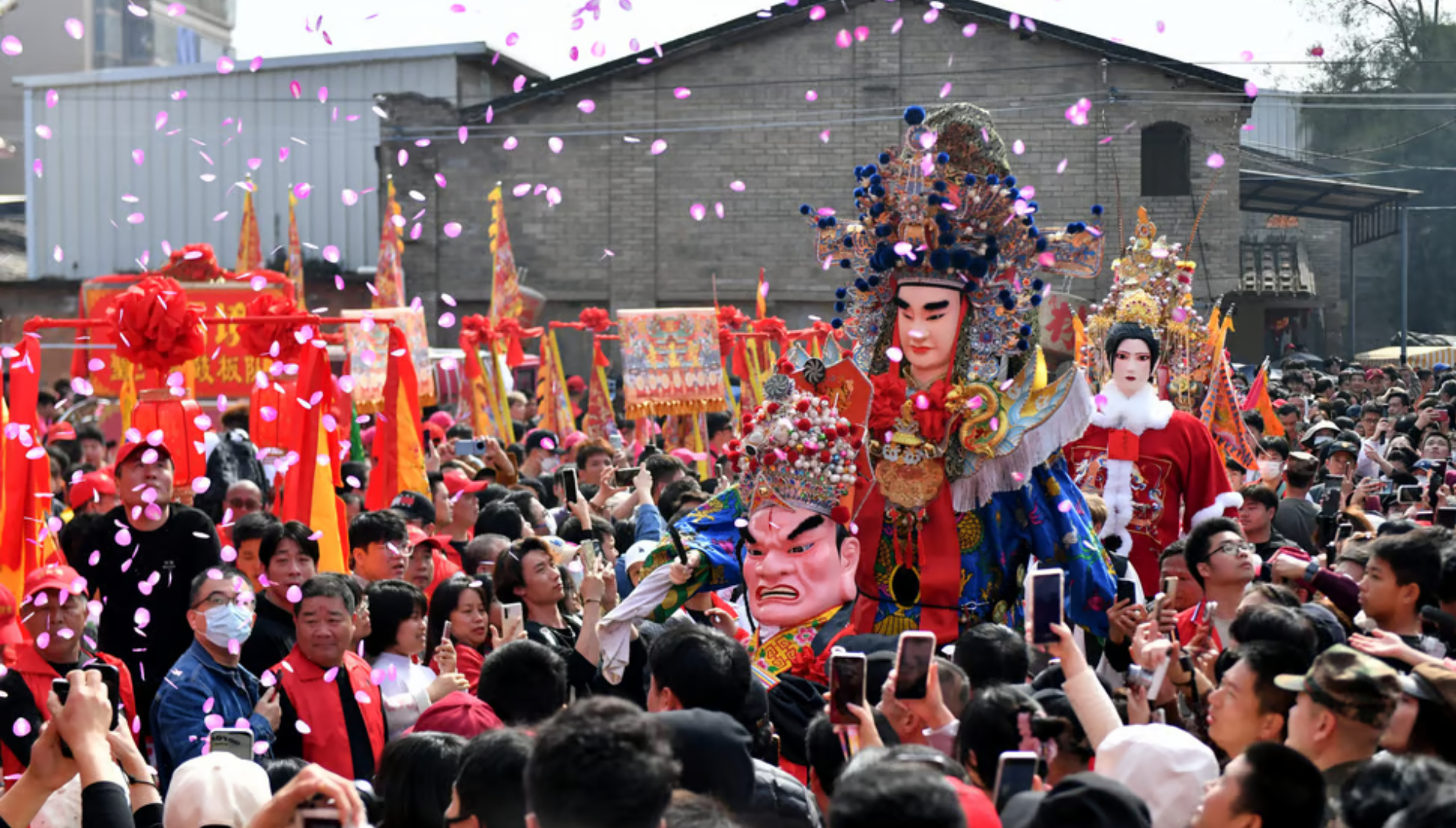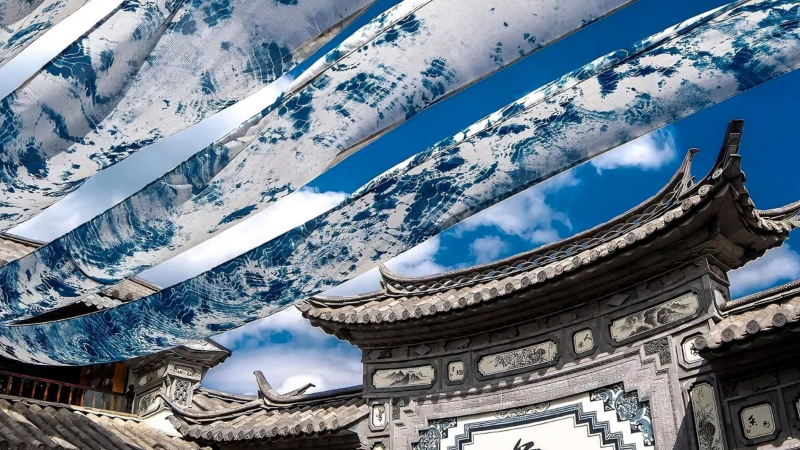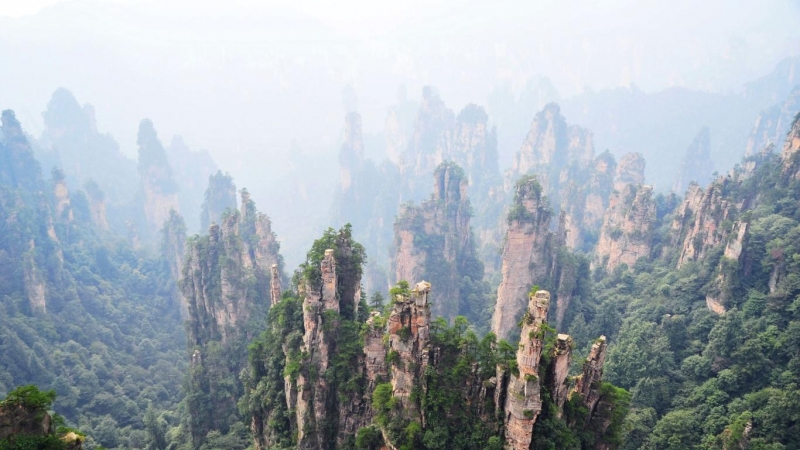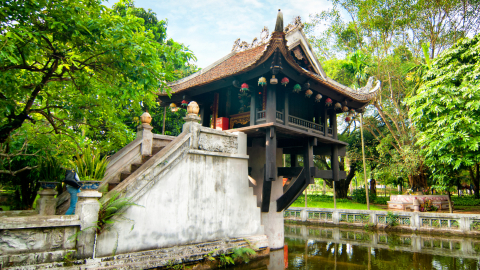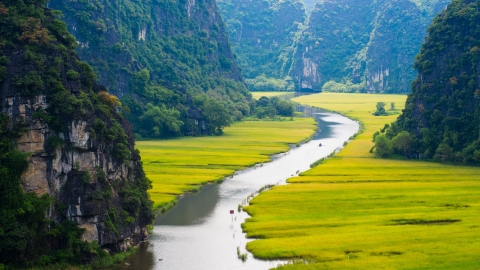The beauty of Chinese spiritual and traditional culture.
The Festival of Welcoming the Gods (游神), also known as Welcoming the Gods (迎神) or Welcoming the Gods (神像出巡), is a traditional folk cultural activity deeply rooted in religious and spiritual beliefs, celebrated in many localities throughout China. It is an important event in the spiritual life of the people, especially in rural areas and communities with long-standing traditions.
This is a cultural event deeply rooted in folk beliefs and Taoism, often held at the beginning of the year in many localities across China, especially in the provinces of Guangdong, Fujian, and Zhejiang. The festival is not only an occasion for people to express their reverence and gratitude to the deities, but also a chance for them to pray for good fortune in the new year, ward off evil spirits, and bring about a peaceful and prosperous year.
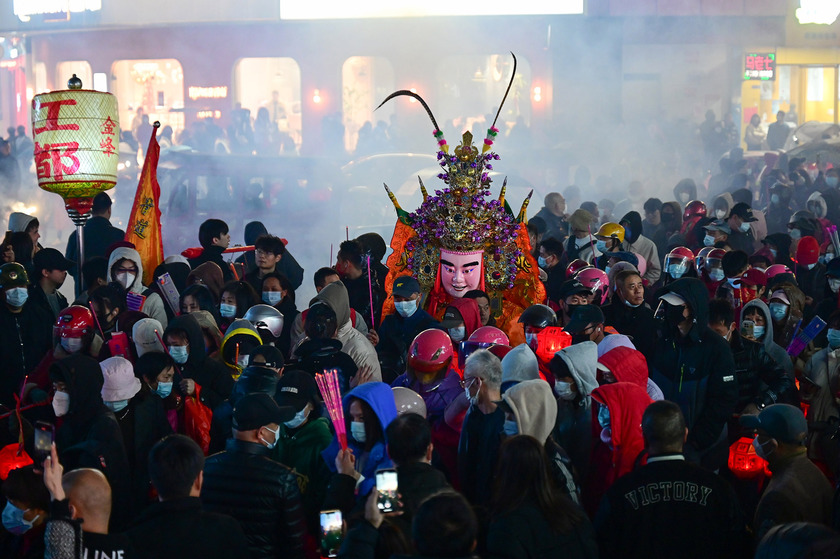
"The God of the Cross Procession," also known as the "Cross Procession," is a grand annual festival held during the New Year in Fujian Province, China.
The Yushen Festival is not merely a religious ritual but also a significant cultural event, deeply reflecting the traditional values and community spirit of the Chinese people. During this festival, people from all over gather at temples to participate in religious activities, pray, and offer incense.
The deep roots of the God-Worshiping Festival stem from the belief in worshipping protective deities within the community. These are often deities who play a crucial role in protecting crops, bringing prosperity to the villagers, or deities who have made significant contributions to protecting human health, warding off disease and evil spirits. This belief has a history spanning hundreds of years, enduring many ups and downs over time, and has become one of the distinctive features of Chinese spiritual culture.
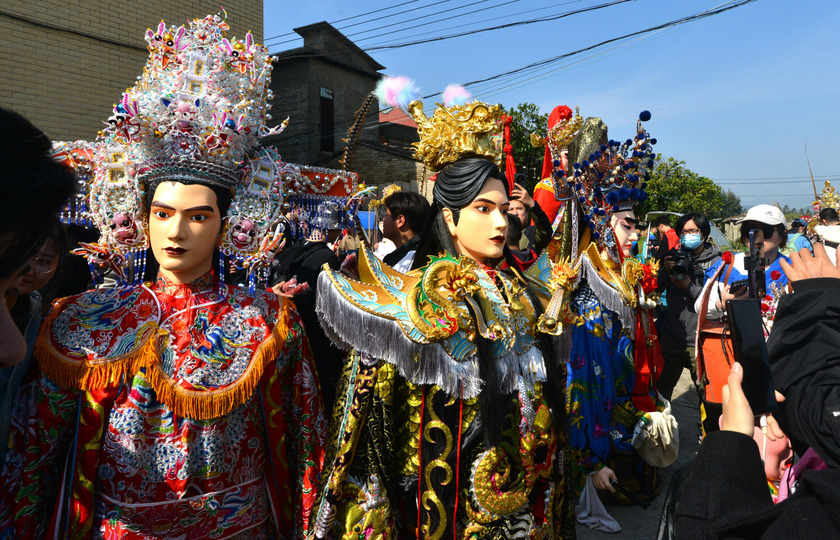
The Yu Shen Festival in China attracts large crowds with its rituals of carrying sacred palanquins, lion dances, and dragon dances.
The most prominent and important highlight of the Du Than Festival is the procession of the sacred palanquins. This is a solemn and meaningful activity, expressing the people's reverence for the protective deities. The statues of the gods, exquisitely crafted and elaborately decorated, are placed respectfully on magnificent palanquins. These palanquins are then carried through the main streets, carrying the prayers and wishes of the people.
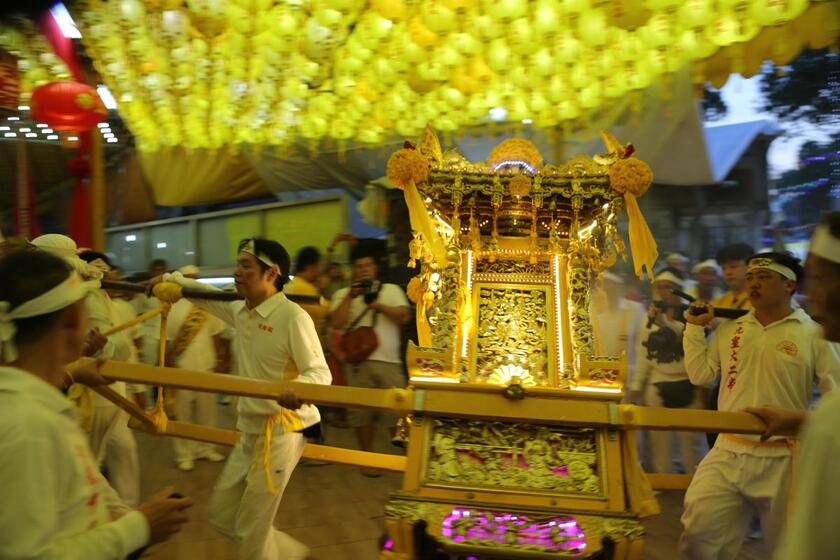
The procession of the palanquin is the highlight of this festival.
The procession typically includes hundreds of people, from those carrying the palanquin and lighting incense, to groups performing arts such as lion dances, dragon dances, and martial arts demonstrations. Those carrying the palanquin are strong, healthy young men, carefully selected. They must not only be physically fit but also possess deep reverence and a strong sense of responsibility.
Those who light incense are usually elderly people with prestige in the community. Their duty is to light incense and pray to the gods, wishing for peace and good fortune for everyone.
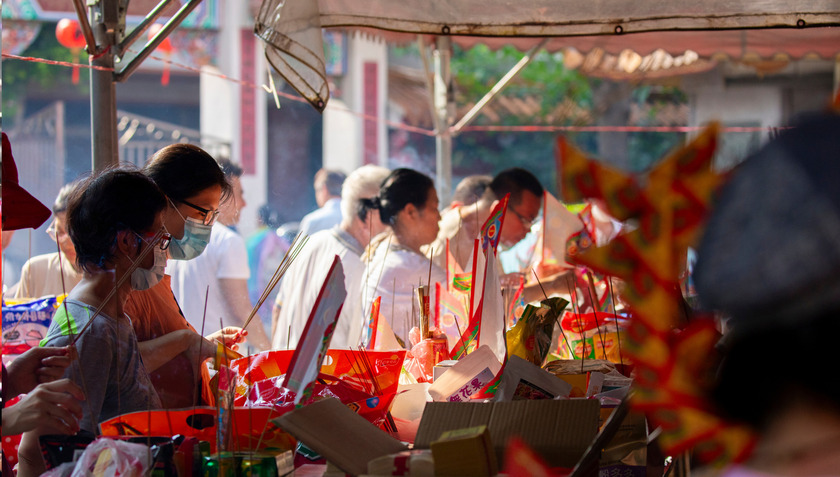
The Chinese still maintain unique traditions in this festival.
Performing arts groups, such as lion dances, dragon dances, and martial arts demonstrations, are indispensable components of the palanquin procession. These performances are not only entertaining but also hold deep spiritual significance. Lion and dragon dances symbolize strength and good fortune, warding off evil spirits and bringing blessings. Martial arts showcase chivalry and human strength, while also serving as a way to improve physical health and willpower.
The procession passed through the main streets, attracting the attention of a large crowd. Everyone poured into the streets to watch and participate in the festival. Along both sides of the procession, people of all ages, men and women, gathered to welcome the deities. They sincerely lit incense, prepared offerings, and clasped their hands in prayer, hoping to receive protection and blessings from the gods, wishing for a peaceful, happy, and prosperous new year. The swirling incense smoke blended with the solemn atmosphere, creating a colorful spiritual scene.
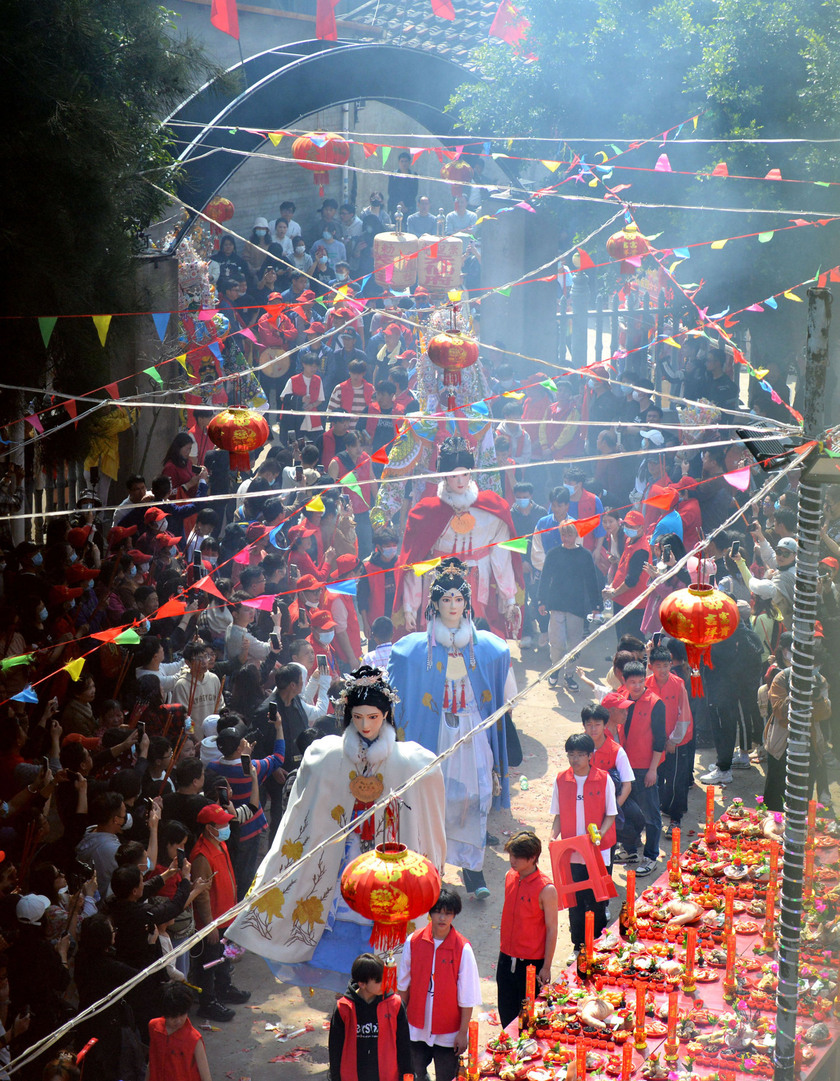
The festival originates from the belief in worshipping protective deities within the community.
During the procession, people often light firecrackers and beat drums and gongs to ward off evil spirits and pray for peace and good fortune. The sound of firecrackers exploding, the lively drumming and gong playing, along with the applause and cheers of the crowd, create a vibrant and festive atmosphere.
They set off firecrackers and beat drums and gongs to ward off evil spirits and pray for peace and good fortune. The sound of firecrackers exploding filled the air, the drums and gongs resounded, and the applause and cheers of the crowd created a lively and festive atmosphere.
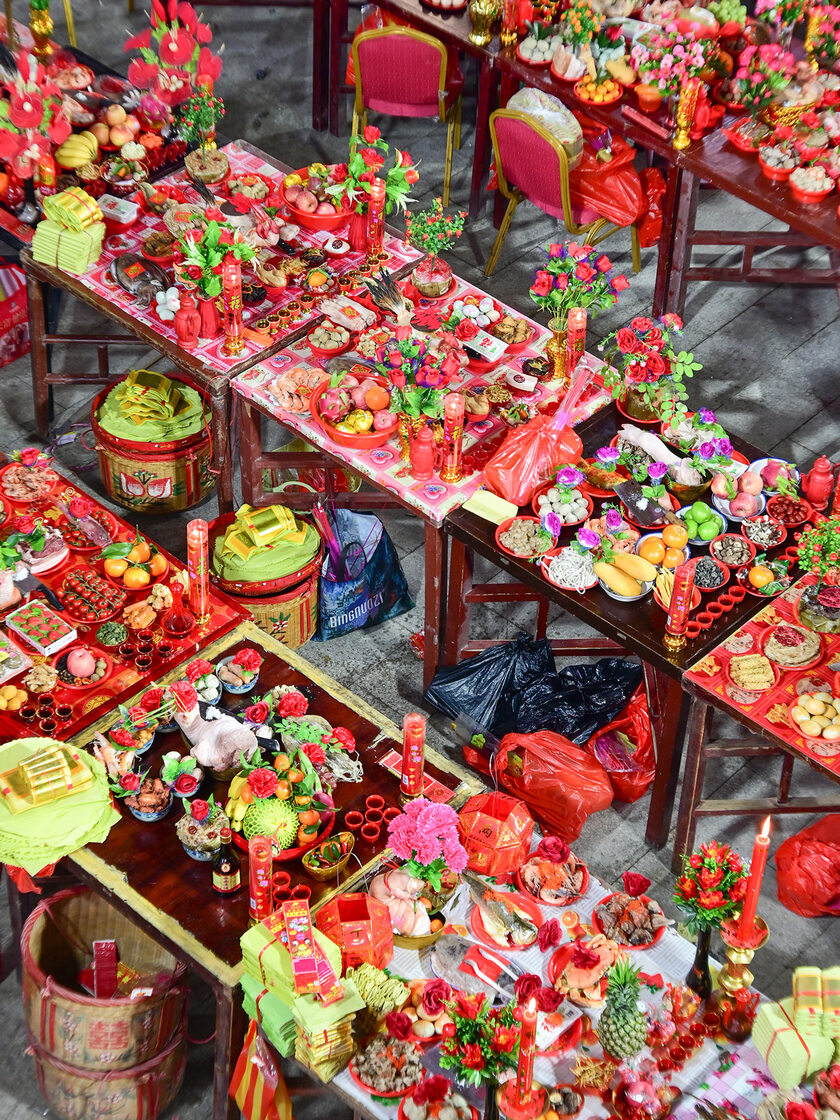
People express their hopes and wishes for a prosperous and peaceful year through traditional rituals.
Spectacular artistic performances are also an integral part of the festival. Lion and dragon dance troupes, with their graceful and powerful movements, and impressive martial arts displays, attract the attention of large audiences. These performances are not only entertaining but also have profound spiritual significance, showcasing the strength and courage of the people.
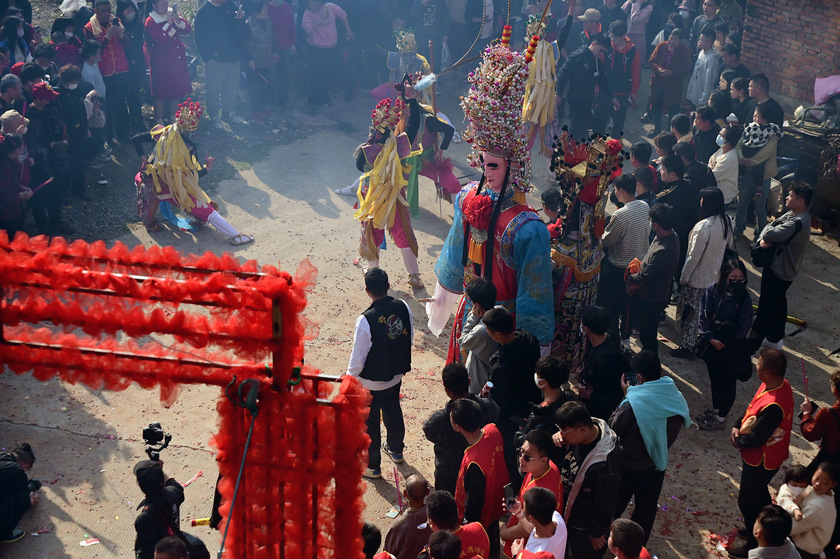
In some localities, the ritual of walking on burning coals is also held as part of the festival. This is a highly challenging ritual, requiring courage and absolute faith. Participants must walk barefoot on glowing coals, demonstrating their faith and reverence for the gods. This ritual not only creates excitement and reverence for the gods but also symbolizes human courage and unwavering will.
Preserving age-old cultural traditions.
Through artistic and ceremonial activities organized during the festival, such as lion dance, dragon dance, traditional opera, martial arts performances, and street parades, the Du Than Festival becomes a strong bridge between generations. It helps preserve and pass on to future generations the beautiful traditional cultural features, good moral values, martial spirit, courage, gratitude, and respect for the deities who have contributed to protecting and sheltering the community.
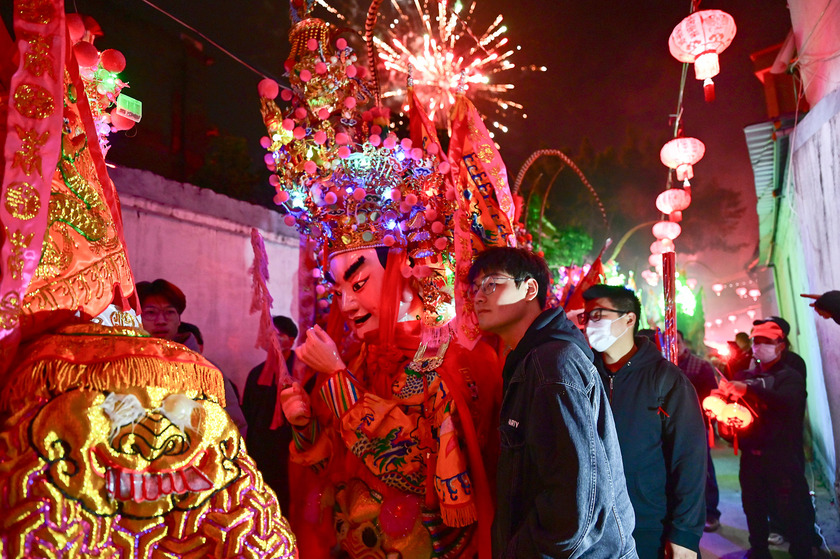
The festival also attracts a large number of international tourists who want to learn about Chinese culture and experience the unique festive atmosphere.
The Du Than Festival is not only an occasion for people to have fun and relax together, but also an opportunity for each individual to immerse themselves in traditional culture, feel the connection between themselves and the community, between the past and the present. It helps each person better understand the origins, history, and culture of their nation, thereby raising their sense of responsibility in preserving and promoting traditional cultural values.
In the context of modern society, where life is increasingly fast-paced and stressful, the Du Than Festival becomes more meaningful than ever. It is like a refreshing breeze, blowing into the soul of each person, helping them find peace and tranquility, while simultaneously arousing pride in the traditional cultural values of their homeland.
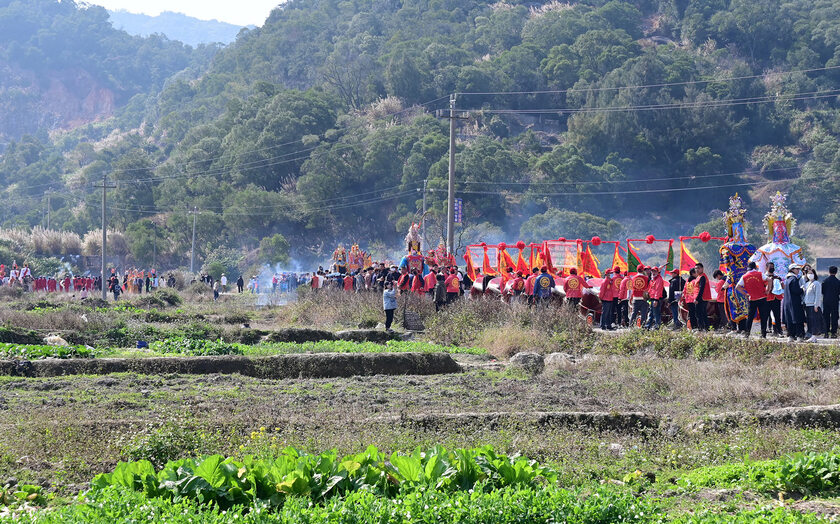
This is also an opportunity for localities to promote tourism, boost the economy, and affirm their unique cultural identity.
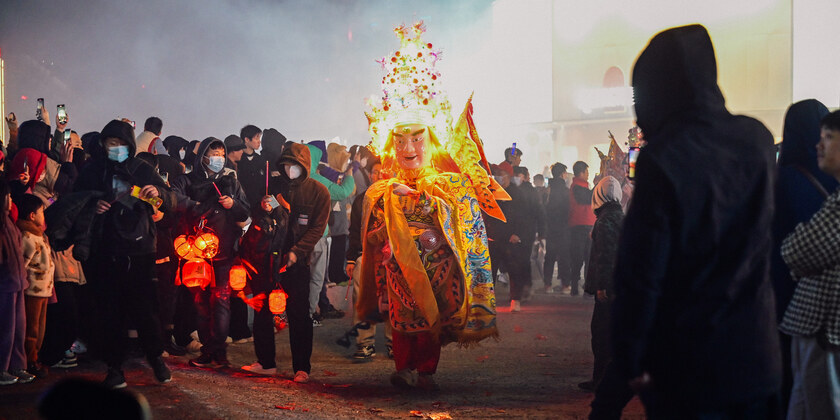
The Yushen Festival is not only a local cultural event but also an important part of China's diverse and rich cultural landscape. It contributes to enriching the spiritual life of the people and is an attractive destination for domestic and international tourists who want to learn about traditional Chinese culture.
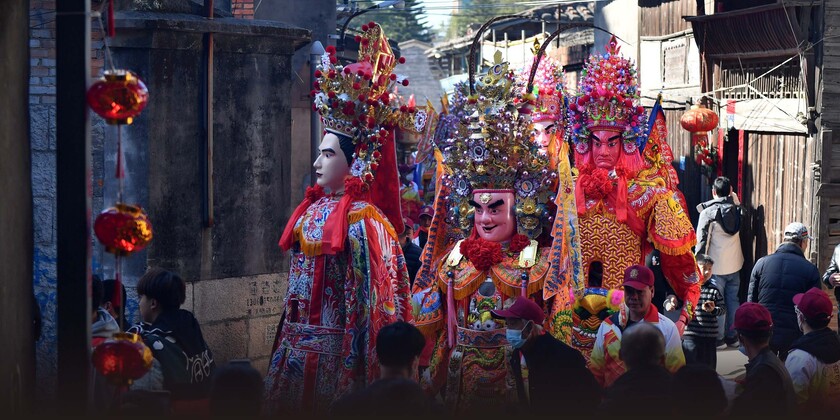
In modern times, the Du Than Festival retains its core values, but at the same time, it has been adapted to suit modern life.
The Du Than Festival is a testament to the enduring vitality of traditional culture in modern society. It shows that, no matter how much time passes, beautiful cultural values are always cherished and preserved in the hearts of every citizen.

 VI
VI EN
EN



